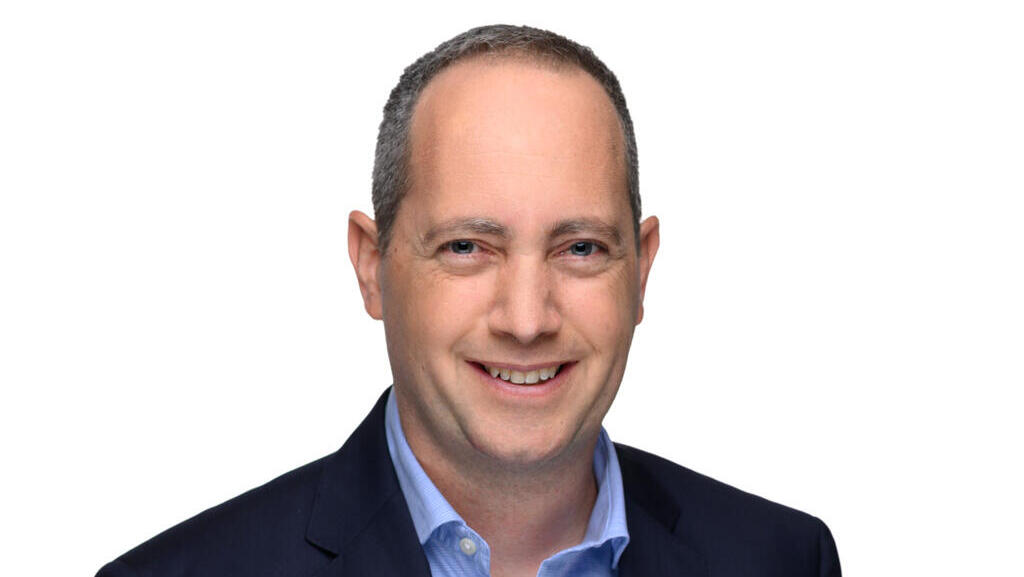
Interview
Not under the microscope: Scopio Labs transforms blood testing
Co-founder & CEO Itai Hayut shares how his Israeli startup streamlines the hematologic diagnostic process while rendering blood lab microscopes obsolete
The phrase ‘under a microscope’ means that something (or someone) is being studied very closely, but Israeli medtech startup Scopio Labs, whose very name derives from the Latin (and Ancient Greek) word meaning “to look at” or “examine”, is seeking to make microscopes, at least those used in blood testing labs, obsolete.
Founded in 2015, Scopio’s origin story began when co-founders Itai Hayut (who serves as CEO) and Erez Naaman (CTO), who both come from a physics and electro-optics background, studied together in the applied physics department at Hebrew University in Jerusalem. Hayut sat down with CTech for an exclusive interview and picked up the story from there.
“Around eight years ago there was a lot of hype around new possibilities surrounding deep learning and computer vision and how it could be used to analyze image data. We were excited about the potential of harnessing these capabilities to create a great product and we knew we wanted to focus on the world of health care as we saw this as an important opportunity.”
The turning point came when the pair toured a hematology lab where they saw lab techs using microscopes and counting cells manually. "Manually counting cells is something I strongly believe professionals in the 21st century should no longer have to do,” Hayut stated firmly. “When you manually count cells, or anything else for that matter, mistakes can be made. Plus it’s extremely time consuming, not to mention tedious. This is not just an issue in hematology labs in Israel, but worldwide.”
The next step for the duo was to purchase a scanner that could digitize the glass slides, turn them into digital files, and apply the tools of deep learning and computer vision to analyze them. “We soon discovered that there was no platform and no technology that could scan and digitize the slides quickly, and in high enough resolution, for us to apply these innovative tools on top of it,” Hayut said.
So, you shifted gears?
“I think the serendipity here is that solving this problem was very deep within our professional background: optics, computational photography, etc. So, yes, we ended up solving a different problem than what we had set out to originally, just to enable ourselves to solve what we really wanted to. Sometimes in life in order to solve a problem you have to build the solution yourself. So for us it was a perfect storm - but in a positive way.”
You mentioned ‘computational photography’, what role does that play?
“We looked into the problem and tried to understand why there were no scanners that could digitize these microscopy samples. In hematology, you need the highest resolution in light microscopy possible. For example, if for tissues one would use 20X subject magnification, in blood you need much higher resolution because you want to look into the cells to see the small details which affect one’s health. 100X is the largest magnification you can reach with visible light and that’s what you use in hematology labs. Hematology labs are the most challenging types of labs in terms of the magnification needed to review samples. The problem is that when you want to get very high resolution in microscopy, you need to use a lens with a small field of view. It gives you high resolution, but in a very small portion of the sample.
"We discovered that the way to solve the problem was by using a completely different collection method for the data. This is very computational intensive, but luckily for us advances in GPU technology and processing units by Nvidia and others enabled us to crunch the data and create the image quickly and in beautiful quality and in a cost effective way. It also enables us to work in resolution of 100X. In summary, at Scopio we have managed to break the trade off between ‘field of view’ (area) and ‘resolution’. This is a technology you simply couldn’t have developed 10 years ago.”
What are the main advantages of Scopio’s solution?
“It’s important to stress that our product is not just a scanner, we provide a whole workflow solution. Digitalization by itself does not hold intrinsic value. If one is using our platform and looking at the images on a computer screen but still insists on counting cells manually via a microscope with a clicker, we haven’t really done anything for the lab techs at all. Our solution not only scans the image, but it’s comprehensive. It solves a problem for the user in two main ways: First it enables them to do their work remotely, so the expert and the blood sample need not be physically in the same location - which has major benefits both in the level of expertise, the level of care, not to mention efficiency. It’s what I like to call a ‘democratization of expertise’, it levels the playing field so everyone can get the best experts analyzing samples and thereby receive the best possible care anywhere in the world. And the second advantage is that we are actually using AI and computer vision, just as we set out to do initially, to count the cells and classify them and serve as a decision support system, which provides more consistent results than before.”
To cope with no microscope
When asked if Scopio’s technology will make use of microscopes in hematology labs obsolete, Hayut was emphatic.
“Our ultimate goal, through our applications, some of which are still in the pipeline, including a bone marrow application, is to completely replace all the microscopy work in hematology labs with fully digital AI-powered work. That’s the future."
So, you seek to replace microscopes in blood labs, but what about the actual workers? Would you classify your technology as diagnostic or do the medical experts make the final call?
“I want to make this point very clearly. We are not replacing the human in the loop completely, we are simply augmenting their capabilities as experts to do their work much more efficiently - including remotely - consistently and effectively. We provide the digital scanner in a Google Maps-like kind of interface where the lab technicians and the medical professionals can zoom in and out on the file of the blood sample. We also use AI to suggest the classification of the cells and present them to the user, who can, if they want to, correct what the AI has offered. So it’s the user (the lab tech or the doctor) who is ultimately in control. Computers do amazing things, but looking at the big picture holistically, we still need the human factor when deciding on the medical course of action."
$85 million raised
Scopio Labs has grown considerably since its founding back in 2015, and now numbers over 100 employees, the vast majority of whom work at their Tel Aviv-based headquarters, as well as a commercial presence in the U.S. and Europe. The company has raised $85 million to date, the bulk of which, $50 million, having come in a Series C round this past February.
Hayut told CTech that Scopio Labs' FDA-cleared, CE-marked Full-Field Peripheral Blood Smear application is in full commercial use across the U.S. and Europe. “There are some 120,000 hematology labs in the world,” Hayut explains. “These are the labs that provide blood testing. Any and every hematology lab around the world is a potential customer for our products.”
Related articles:
How was Scopio Labs affected by the global pandemic?
“Regarding our technology and market, there are two important things that pushed us forward during the pandemic. First, a general global understanding that healthcare is critical and that it has a direct impact on the world’s economy. We as part of the human race must dedicate resources and propel forward diagnostics and medical technologies not only to save lives, but also to enable the economy and everyday life as we know it to continue and thrive. So, thanks to the pandemic, the world recognized the need for healthcare solutions.
“The second thing that happened was that telehealth, the ability for someone to do their work remotely in the field of healthcare, became crucial during the pandemic and emerging from it. The understanding that the healthcare provider does not need to be at the same physical location as the patient is directly related to what we are doing at Scopio Labs with our remote solutions. With our technology we are seeing that it’s not just remote work, but service being provided from home, and in some locations even on weekends, holidays, and after office hours. All this also enables 24/7 expedited care. Due to health concerns during the pandemic, blood labs and medical centers not only recommended remote patient care, but required it, and our system was more than ready and able to meet that need.”
Since Scopio Labs deals in blood testing, how do you feel about the Theranos affair?
“Although the Theranos issue was bad in general for the industry, I think it created a higher bar of trust that a company must generate, specifically in this field of blood testing. I am very proud of the work our company is doing and with the trust we have established with the FDA. The only upside I can think of to the Theranos story is that it has brought to the forefront the market opportunity in diagnostics - but you must do it right. That means building up trust and working with regulators, making sure you are on the right track as far as the safety and quality of your product.”
As an Israeli medtech startup, how do you see Israel’s role in the global medtech field?
“Israel has a long history in leading the field of medical devices, specifically in imaging, but lately I just see an explosion of creativity and leadership in not just imaging, but also the analysis of medical images. When you look at the fields of radiology, pathology, and obviously hematology, I think Israel is really taking the lead, especially when it comes to the application of AI to the imaging modalities and pushing the field forward. There are great Israeli companies in the field of medtech diagnostics and we are very proud to be part of this group.”
